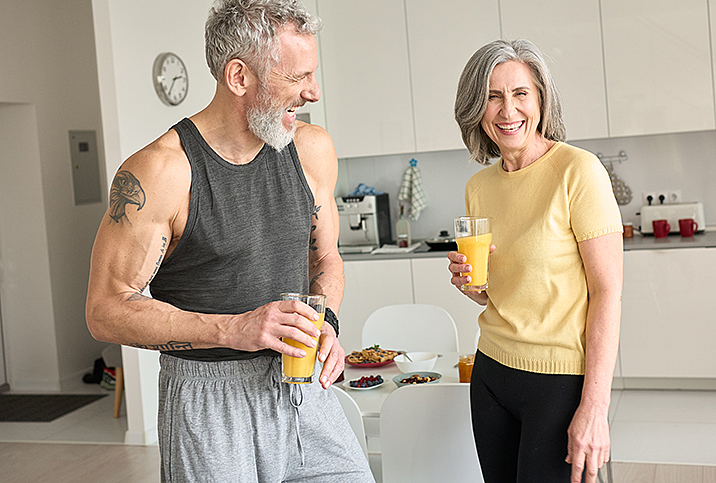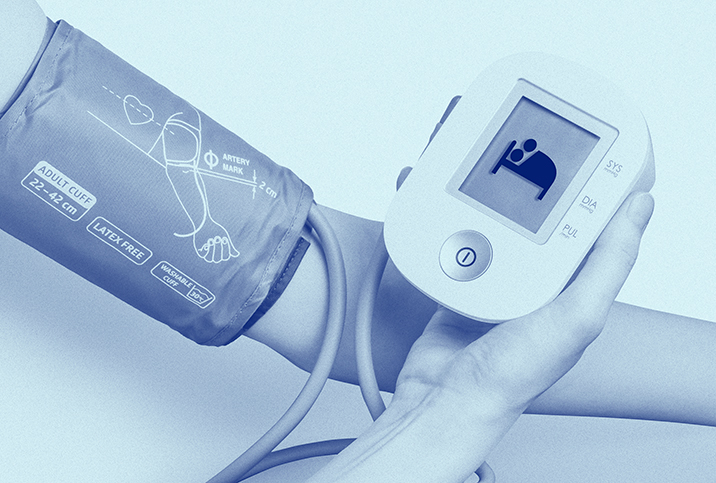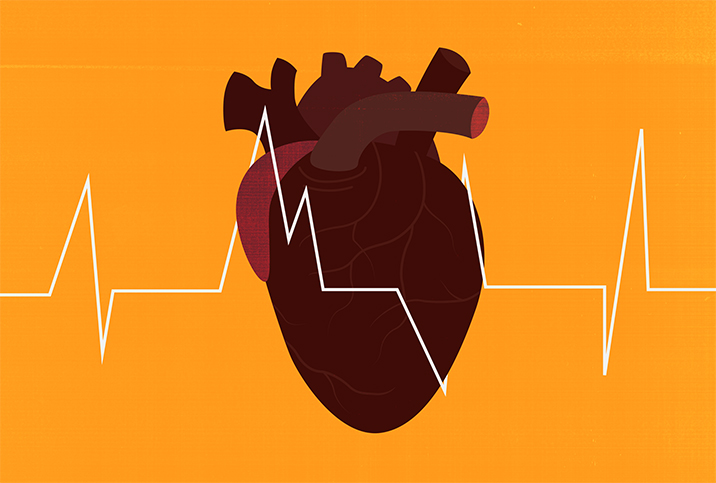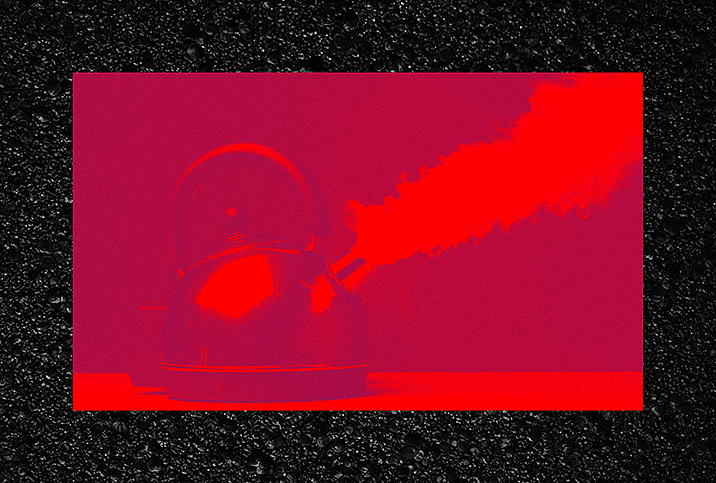Reduce Blood Pressure Naturally

High blood pressure, also known as hypertension, affects about 1.28 billion adults between the ages of 30 to 79 around the globe, according to the World Health Organization. Out of those people, it's estimated that only about 21 percent manage to keep it regulated.
Of course, hypertension is directly linked to the performance of the heart, so keeping it under control can be a life-or-death situation. However, hypertension medications can interfere with other prescriptions and come with side effects. To circumvent these complications, it's possible to reduce and regulate blood pressure without medication.
The consequences of high blood pressure
When someone has hypertension, the velocity of their blood exerted against the arterial walls is too intense. The impact can harm the arteries and subsequently lead to other serious medical conditions, including ones involving the heart and kidneys. As if it couldn't get any worse, hypertension can also impact sex.
"In men, high blood pressure leads to a hardening and stiffening of arteries, including circulation to the penis. This can cause erectile dysfunction, reduced sex drive and difficulty with ejaculation," said Pilar Stevens-Haynes, M.D., assistant professor of medicine and cardiology at Icahn School of Medicine at Mount Sinai in New York City.
These effects can be from high blood pressure itself or a result of prescription drugs that are prescribed to control the condition.
"Some blood pressure medications can affect not only sex drive in both men and women but sexual function also," said Natasha Zervaas, nurse practitioner and founder of Green Secrets Holistic Health Clinic and School in Australia.
"In women, it's speculated that high blood pressure has a similar effect in terms of decreasing arousal and, due to poor circulation, causes vaginal dryness and difficulties achieving orgasm," Stevens-Haynes added.
People who properly manage their high blood pressure can safely have sex but shouldn't overexert themselves and should limit frequency. If blood pressure is uncontrolled, avoiding sex is recommended.
The nature of the problem
Blood pressure (BP) is measured in millimeters of mercury (mmHg). In blood pressure readings, the top number represents systolic BP, the pressure during a heartbeat, while the bottom number represents the diastolic BP, the pressure between heartbeats.
High blood pressure is considered anything above the normal level of 120/80 mmHg, said Rose Cheung, the California-based co-author of "Healing Herbal Soups: Boost Your Immunity and Weather the Seasons with Traditional Chinese Recipes."
Along with a genetic predisposition for high blood pressure, lifestyle elements can put someone at risk, too.
"At-risk patients include being overweight, poor diet choices, being physically inactive, smoking and drinking," Stevens-Haynes explained.
"Men tend to experience high blood pressure more than women, and women tend to start experiencing high blood pressure once they are over 65. Now, young adults also have that problem," Cheung added.
While there are many medications prescribed for high BP, they aren't always an option because some people prefer not to use drugs or have other medical conflicts. However, you can try alternative methods to reduce both high blood pressure and the unfortunate side effects of prescribed medications.
Taking a natural approach
All three experts recommended lifestyle changes in diet and exercise, along with the use of natural remedies regardless of whether prescriptions are used.
"Reaching for more natural solutions to high blood pressure shouldn't ever be the last resort, and in fact, adopting some healthy lifestyle changes can go a long way to improving one's overall health and well-being," Zervaas advised.
In many areas of your life, even small changes can make a difference.
Nutrition and diet
Food can have a monumental impact on blood pressure. All three experts recommended diets low in salt, sugar and processed foods. Stevens-Haynes advised limiting salt intake to fewer than 2 grams per day and avoiding products from a bag or can. Cheung suggested moderation in diet, with an increase in vegetable ratio as a good practice to follow.
The DASH diet—Dietary Approaches to Stop Hypertension—was designed specifically to combat high blood pressure. It necessitates a primarily plant-based diet, with vegetables, fruits, nuts, seeds and legumes making up the bulk and supplements used for micronutrients. Each expert advised strictly avoiding processed foods full of salt and sugar, two ingredients known to cause high BP.
"Supplementing with minerals such as potassium and magnesium are an easy way to support healthy blood pressure levels naturally," Zervaas said. "Magnesium is a wonderful natural muscle relaxant and can act as a natural calcium channel blocker, increasing nitric oxide, which improves direct and indirect vasodilation of the blood vessels."
She advocated these supplements in particular because they have the added benefit of increasing the effectiveness of all antihypertensive drugs, so they are an excellent conjoined treatment for people who require medication. In fact, a study she mentioned showed that a combination of an increase in these minerals and a decrease in salt reduces blood pressure more effectively than a singular mineral intake, and can even be as effective as taking one hypertensive drug, according to other research.
Exercise and lifestyle
Staying active is another proven way to reduce your blood pressure. Though you probably won't be cleared to participate in a triathlon or anything extremely labor-intensive, regulated exercise is quite beneficial for high blood pressure. Aerobics are especially helpful because they increase your heart and breathing rates.
"Yoga and tai chi are good exercises," Cheung said. "I do not recommend very vigorous exercises as they may affect the heart."
If you're concerned during your workout for any reason, stop to check your heart rate and never continue if you're experiencing any sort of pain. You may need to see a doctor if your symptoms do not ease, as they could be red flags for a heart attack. Needless to say, it is always better to be cautious than risk any type of cardiac episode.
Relieve stress and follow the program
"Never discount the benefits of adopting simple stress-reducing techniques daily, such as deep breathing, meditation and a good night's sleep, as well as consuming a nutrient, mineral-rich diet in order to support healthy blood pressure levels," Zervaas said.
Perhaps the most essential practice is to follow the treatment plan established by your doctor and/or cardiologist. If you are on medication, be diligent about taking it as instructed. Hypertension drugs are notorious for adverse side effects, which are often associated with misuse and bad interactions. If you have concerns, check with a medical professional.
"High blood pressure affects many different systems in the body, some obvious and immediately notable, although you may not make the correlation, and others not so noticeable, in fact, often silent until an immediate problem, like a stroke," Stevens-Haynes explained. "Take BP seriously."


















